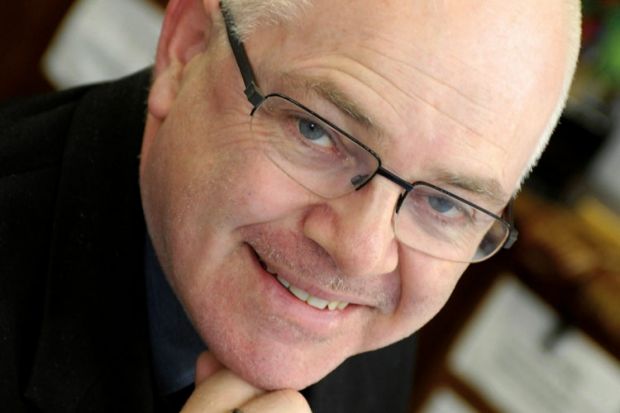Simon Marginson, one of the best-known commentators on the internationalisation of universities, joined the Institute of Education, University of London in October as professor of international higher education. He previously worked at the Centre for the Study of Higher Education at the University of Melbourne.
Where and when were you born?
Melbourne, Australia, 6 July 1951. The time might have been 1.30am, but my mother is not absolutely sure.
How has this shaped you?
Melbourne has evolved into a global city during my lifetime. I hope that, like the city, I have become less provincial and less British, more cosmopolitan and more Asian.
Should Jo Bloggs care about your work?
Universal cures for cancer and diabetes would be more exciting.
Have you had a eureka moment?
Not exactly, but if you look at something long enough you can turn it upside down and inside out. If everyone takes it for granted that something is true, it probably isn’t. These are the moves that work for me.
What advice would you give to your younger self?
Back your gut instinct. Stick to piano practice.
Tell us about someone you’ve always admired
Schubert. Astonishing output in a short time. His death at 31, just after the last three piano sonatas and the great string quintet, is unutterably sad. Who knows what he could have accomplished if he had lived as long as Beethoven.
What has changed most in (global) higher education in the past decade?
Global rankings have transformed research universities into a single world market. But the big game changer, the one that empties out the political economy of higher education, is Moocs. This might be the point at which mass higher education slips off the leash. Some would say this is a good thing, but I am not so sanguine about it. Elite higher education was never on the leash – we do not control it; it controls us.
What are the best and worst things about your job?
I love academic and journalistic writing but do much too much of it. I would like to write less and write better. Poets are to be envied.
What keeps you awake at night?
The unfinished text I was working on just before falling asleep.
Tell us about a book, show, film or play that you love
Only one? The internet. Shakespeare, Coleridge, Dante, Tolkien, Hermann Hesse, Rosemary Sutcliff and many others populated my childhood.
What do you do for fun?
I write, read history, prehistory and palaeo-history, garden, visit museums and take photos. Travel and go home. Cook and eat. Hang out with my partner and my son and daughter.
What’s your biggest regret?
It’s not a burning regret, but it might have been good to have children earlier and have more of them. There’s nothing better.
Who from history would you most like to meet?
Fred Hirsch, an economist and financial journalist who died in 1978. Social Limits to Growth (1976) is a brilliantly insightful book. The idea of positional goods explains our ceaseless search for betterment and why higher education (and society) cannot satisfy everyone.
What’s an undergraduate degree worth?
Unfortunately, it depends where that degree was earned.
Moocs or books?
Visual stimulation and ease of use versus tactile sensation and sentiment. Is it a choice?
To what, or whom, do you feel most allegiance?
We are now self-directed subjects of modernity, are we not? I am in control of my own life. Although I am sure it is an illusion!
What philosophy do you live by?
All economy is economy of time.
Appointments
Bernard Lane, a sustainable tourism expert, has been appointed visiting professor in Leeds Metropolitan University’s Carnegie Faculty. In his new role, Professor Lane will assist in project development within the School of Events, Tourism and Hospitality, working with the tourism industry and contributing to research within the school.
The University of Surrey has appointed David Blackbourn head of the School of Biosciences and Medicine. Professor Blackbourn’s research is focused on viruses that are responsible for causing cancer.
Juan Cruz, currently director of the Liverpool School of Art and Design at Liverpool John Moores University, has been appointed dean of the School of Fine Art at the Royal College of Art.
Julian Chaudhuri has been announced as the new dean of the School of Engineering and Informatics at the University of Bradford. Professor Chaudhuri, who is currently associate dean (research) at the University of Bath, will join Bradford in February.
Aberystwyth University has appointed Bernard Tiddeman head of the department of computer science. He has been at the university since 2010, when he joined as a senior lecturer.
Register to continue
Why register?
- Registration is free and only takes a moment
- Once registered, you can read 3 articles a month
- Sign up for our newsletter
Subscribe
Or subscribe for unlimited access to:
- Unlimited access to news, views, insights & reviews
- Digital editions
- Digital access to THE’s university and college rankings analysis
Already registered or a current subscriber? Login

